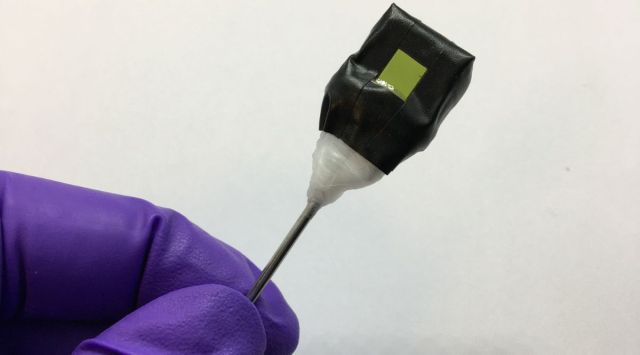A team of scientists from the University of Cambridge has developed a solar-powered technology that can convert carbon dioxide and water into liquid fuels that can be used by internal combustion vehicles as drop-in fuel.
The technology, which mimics the process of photosynthesis, can produce two multicarbon alcohols – ethanol and propanol – in a single step, using only sunlight as the energy source.
Ethanol and propanol are high energy density fuels that can be easily stored and transported. Unlike fossil fuels, they produce net zero carbon emissions and are completely renewable. And unlike most bioethanol, they do not divert any agricultural land away from food production.
The researchers say their technology, which they call an “artificial leaf”, is an important step in the transition away from a fossil fuel-based economy. The results are reported in the journal Nature Energy.
“Biofuels like ethanol are a controversial technology, not least because they take up agricultural land that could be used to grow food instead,” said Professor Erwin Reisner, who led the research. Reisner is a professor at the Yusuf Hamied Department of Chemistry at Cambridge.
For several years, Reisner’s research group has been developing sustainable, zero-carbon fuels inspired by photosynthesis – the process by which plants convert sunlight into food – using artificial leaves. To date, these artificial leaves have only been able to make simple chemicals, such as syngas, a mixture of hydrogen and carbon monoxide that is used to produce fuels, pharmaceuticals, plastics and fertilisers.
But to make the technology more practical, it would need to be able to produce more complex chemicals directly in a single solar-powered step.
Now, the artificial leaf can directly produce clean ethanol and propanol without the need for the intermediary step of producing syngas.
The researchers developed a copper and palladium-based catalyst that enabled the artificial leaf to produce more complex chemicals, specifically the multicarbon alcohols ethanol and n-propanol. Both alcohols are high energy density fuels that can be easily transported and stored.
Other scientists have been able to produce similar chemicals using electrical power, but this is the first time that such complex chemicals have been produced with an artificial leaf using only the energy from the Sun.
Motiar Rahaman, a research associate at the same department and the first author of the paper, said that this is the first proof-of-concept study where they are showing sunlight-driven multicarbon alcohol generation using a standalone artificial leaf.
“At this stage, we are forming alcohols in micromoles. Further optimizations of the device are required to improve its efficiency, which we are working on. After that, it can be used for large-scale production of such fuels,” he said.
The researchers hope that their technology will inspire more people to explore the potential of solar fuels and contribute to a cleaner and greener future.





